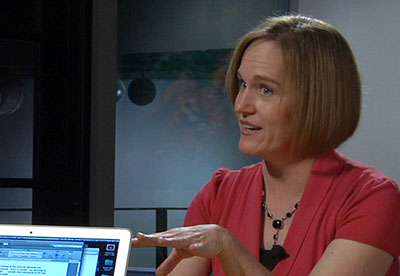Q & A with Dr. Laurie
Q: Dr. Laurie, how does a man with low testosterone typically present?
Dr. Laurie: A good example, I recently saw a 47-year old gentleman complaining of fatigue, a loss of muscle tone, decreased memory, lack of concentration, and a general decline in his vitality. This is a common theme I see amongst men age 35 to 60 years old.
Q: Sounds like men go through their own menopause?
Dr. Laurie: Actually yes! Andropause is the male version of menopause. This is when men have a decline in Testosterone levels and can suffer from many symptoms such as low energy, a decrease in morning erections, decreased mental focus and concentration, increased aches and pains, delayed healing from musculoskeletal injuries (tendons, muscles, and ligaments), a loss of muscle tone, increased body fat, and a feeling that they have passed their peak.
Q: You didn’t specifically mention loss of libido?
Dr. Laurie: A loss of sex drive can happen in men, but generally this does not happen until the Testosterone levels are extremely low.
Q: How is low Testosterone best treated?
Dr. Laurie: The good news is that low Testosterone can be treated safely and effectively. In the case of my 47-year-old patient, I discussed the different treatment options and he chose Bio-identical Testosterone pellets. After a few weeks he felt like he was 35 again and he was able to regain his active life.
Q: Lately there has been a lot of talk about whether or not Testosterone treatment is safe. Can you explain?
Dr. Laurie: Unfortunately, there was a poorly done study on about 1,200 men that caused people to think that Testosterone is unsafe. This study was mentioned in the Wall Street Journal and the rest is history.
There have been numerous studies on bio-identical Testosterone that have shown it to be safe and beneficial.
Q: What were the major flaws in the study?
Dr. Laurie: There are numerous flaws to this study. First of all they used synthetic, not bio-identical, Testosterone. There have been numerous studies on bio-identical Testosterone that have shown it to be safe and beneficial.
Q: What is the difference between Synthetic and Bio-identical Testosterone?
Dr. Laurie: Synthetic Testosterone is not chemically the same as bio-identical Testosterone. Bio-identical Testosterone is plant derived and then chemically changed to be chemically identical to what your body would naturally produce if it could. In comparison, synthetic Testosterone is chemically different from what your body would naturally produce. Your body works based on specific chemical reactions, and even the slightest chemical change can have devastating results.
Q: What other flaws did this study on Testosterone have?
Dr. Laurie: Another flaw is that they studied elderly men who were already at a higher risk of heart disease. The study had poor follow up of the men involved, and their Testosterone levels were not optimized. It is no wonder that this study showed an increase in heart disease risk: these men had a high risk anyway, they were using inadequate amounts of Testosterone, and on top of that, were using the synthetic type of Testosterone.
Q: What do studies on bio-identical Testosterone show?
Dr. Laurie: When you look at the numerous studies on bio-identical Testosterone they show benefits to both men and women, including increased bone strength, decreased dementia, decreased heart disease risk, and an overall decrease in chronic disease medication use. Men and women on properly monitored bio-identical hormones think better, move better, and feel better. They live a healthier and happier life.
For more information about bio-identical Testosterone, visit https://naturalbiohealth.com/2015/04/20/15-myths-testosterone-replacement-therapy/


No responses yet
Very interesting – never realized women need testosterone.